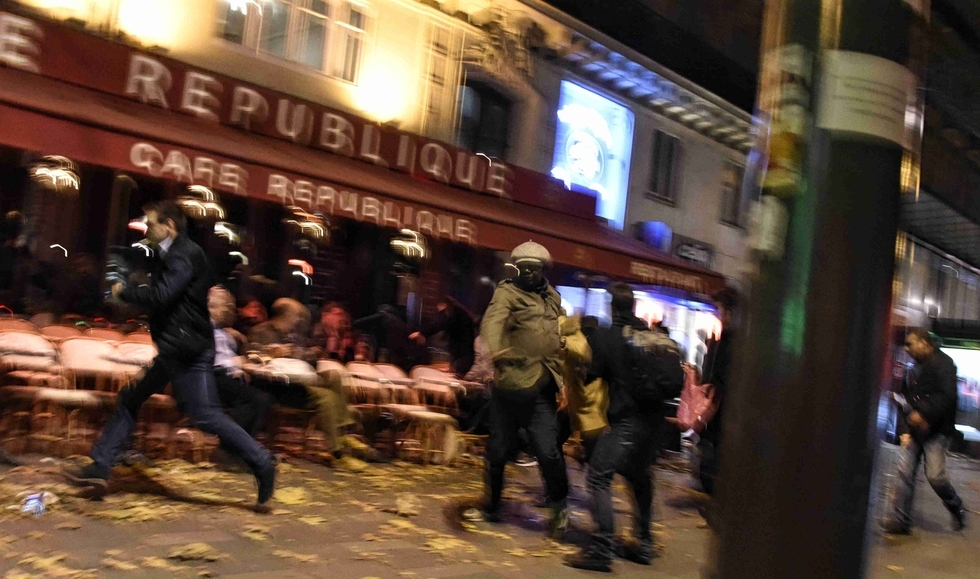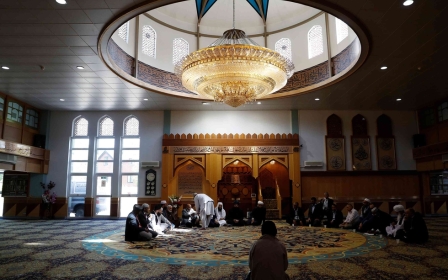Why terrorism is caused by much more than just religion

The spate of terrorist attacks in the UK have again brought to the fore a seemingly unresolvable debate. Is Islam to blame for the recent outbursts of violent extremism?
Bigotry and xenophobia are a poor substitute for evidence-based analysis as a basis for sound policy
US President Donald Trump and those in his camp have an emphatic answer – yes – and fighting terror includes banning Muslims from entering the United States and potentially deporting those currently there.
But bigotry and xenophobia are a poor substitute for evidence-based analysis as a basis for sound policy. Decades of research on violent extremism have yielded empirical insights that can help us confront this terror far more effectively than fearmongering.
Attackers would not fit the bill
In a superficial sense, the connection to “radical Islam” is obvious. The perpetrators of attacks - in Manchester, London, Nice, Orlando and Paris - all paid some form of homage to Islamic State (IS). Some had travelled to Syria.
But they, and many others like them, would never pass muster amid the actual ranks of “Islamist militants”.
- Salman Abedi, the Manchester terrorist, was a party boy with a fondness for vodka Red Bull and weed
- Mohamed Bouhlel, the Nice attacker, had a history of petty crimes, “did not pray and liked girls and salsa”
- Omar Mateen, the Orlando shooter, and Salah Abdessalam, the Paris ring leader, also consumed alcohol publicly and regularly, and both were regulars at gay bars
- Mateen had profiles on several gay dating apps while Abdessalam was known as a gay "rentboy"
- Michael Zihaf-Bibeau, the gunman who shot dead a soldier in Canada's capital, was a drug-addled petty criminal, who, like Abdessalam, had served time in jail
The personal history of many perpetrators of terrorist acts in Western countries fit exactly with that profile: troubled childhoods, lack of religious observance and occasional criminality. These features lead many in the Muslim community, as well as experts like Olivier Roy, to conclude that these terrorists are not “real” Muslims and that Islam is irrelevant to their violence.
Why self-belief matters
Research into “radicalisation” suggests there is no single path to radicalisation. An ideological foundation for violence as elaborated by Daesh (as Islamic State is often called) may be one factor.
But others are also important: political or social grievances; a lack of alternatives to pursue those grievances (for example, there was a sharp reduction in the appeal of violent groups in the aftermath of the Arab Spring and a sharp spike after the military coup in Egypt); and the means and resources to organise an attack; and, finally, individual factors.
Terror Management Theory posits that because we all have a desire to live, the consciousness of our own mortality can lead to potentially paralysing existential terror. We may manage that terror by denying that we will die (“I’m too young” or “I’m too healthy” etc), but eventually we manage it by believing in our immortality; whether literal (belief in an afterlife) or symbolic (legacy, works etc).
But for this sense of immortality to succeed in mitigating the terror of dying, individuals must believe themselves worthy of those rewards and accolades.
In other words, for a belief in an afterlife or legacy to successfully relieve the terror of dying, one must have a sense of self-belief that the way one has lived one's life is worthy of salvation or the adulation of fellow men.
For a belief in an afterlife or legacy to successfully relieve the terror of dying, one must have a sense of self-belief that the way one has lived one's life is worthy of salvation
People lacking in self-esteem, who have not effectively managed their terror of dying, respond by lashing out against others who do not share their cultural worldview.
For example, studies show that Americans, when reminded of their mortality or of 9/11, were more likely to agree with the use of extreme tactics to capture or kill Osama bin Laden, despite knowing those tactics would also kill thousands of innocent people, and would support the use of nuclear weapons against Iran.
Similarly Iranians, reminded of their mortality, were more likely to express support for suicide bombings against Americans. In both settings, control groups that were not exposed to the idea of dying responded in more tolerant and inclusive ways.
Phenomenon not unique to Islam
How does this inform the current debates? How does Islam fit into the equation?
To the extent that there is any religiosity, Abedi, Bouhlel and others demonstrate a classic profile of individuals with low self-esteem who have what Harvard psychologist Gordon Allport called “extrinsic religiousness” where religion serves as little more than a social group identifier.
Intrinsic religiousness describes religion as a part of who people are – an end in itself. Not surprisingly, intrinsic, but not extrinsic religiousness protects against hatred of, and lashing out at, other groups in Terror Management Theory studies.
In Terror Management Theory studies, priming subjects with positive verses from their holy texts - for example, “Do good to others because Allah loves those who do good” (Qur’an, 28:77) or “love your neighbour as yourself” - reduced the hatred toward, and lashing out against, others.
Bouhlel and those whose religious education derives primarily from IS propaganda cannot draw on that fund of spiritual enlightenment.
And so, in the face of personal crises – such as Abedi’s academic failure and increasing isolation and Bouhlel’s marital breakdown and financial problems - they may seek to regain their self-esteem through spectacular acts of terror.
The us-versus-them world
One part of the solution for mitigating the risk of terror may well be decent policy on both the domestic and foreign levels that reduces inequality, isolation and injustice.
The underlying psychology that leads to violence is about much more than just religion
The Islamic State, and troubled individuals, use religion to establish an us-versus-them world. Punitive security measures against Muslims reinforce this binary vision. Populists like Trump seem to be unaware of how they mirror the very narrative they claim to be fighting.
Their attacks, in turn, may spur a generation of young Muslims into approaching their faith, not as a path to spiritual and social fulfillment and enlightenment, but rather as an extrinsic identity that helps them assert their place in a hostile world. This plays right into the hands of IS narratives that reinforce exactly what Terror Management Theory studies warn against.
Much of the public seems to think that “radical Islam” is what causes terrorism. Yet the underlying psychology that leads to violence is about much more than just religion. The responsibility to stifle vicious fanaticism through inclusion and respect doesn’t just belong to Muslims, but to all of us.
-Wael Haddara is an educator, associate professor of medicine at Western University, Canada, and a leader in the Canadian Muslim community. In 2012-2013, he served as senior advisor to President Mohamed Morsi of Egypt.
The views expressed in this article belong to the author and do not necessarily reflect the editorial policy of Middle East Eye.
Photo: People flee during the terror attacks in central Paris on 13 November 2015 (AFP)
This article is available in French on Middle East Eye French edition.
New MEE newsletter: Jerusalem Dispatch
Sign up to get the latest insights and analysis on Israel-Palestine, alongside Turkey Unpacked and other MEE newsletters
Middle East Eye delivers independent and unrivalled coverage and analysis of the Middle East, North Africa and beyond. To learn more about republishing this content and the associated fees, please fill out this form. More about MEE can be found here.







